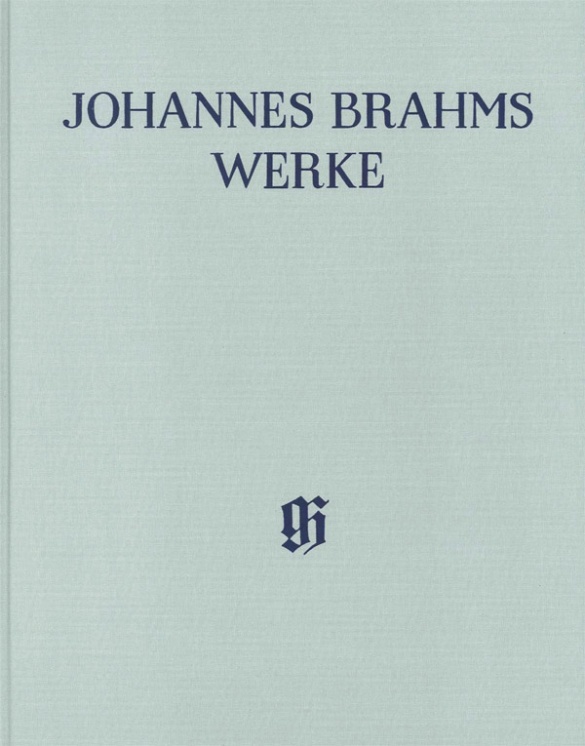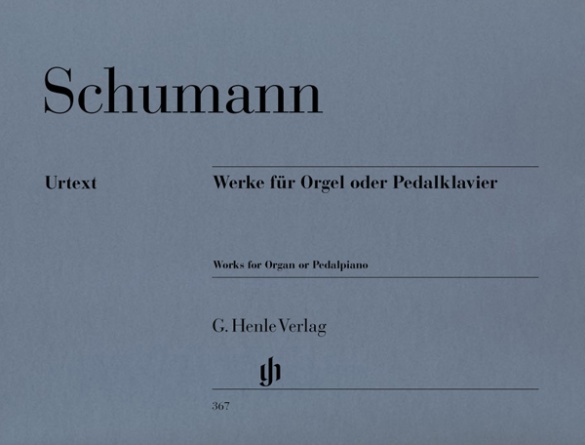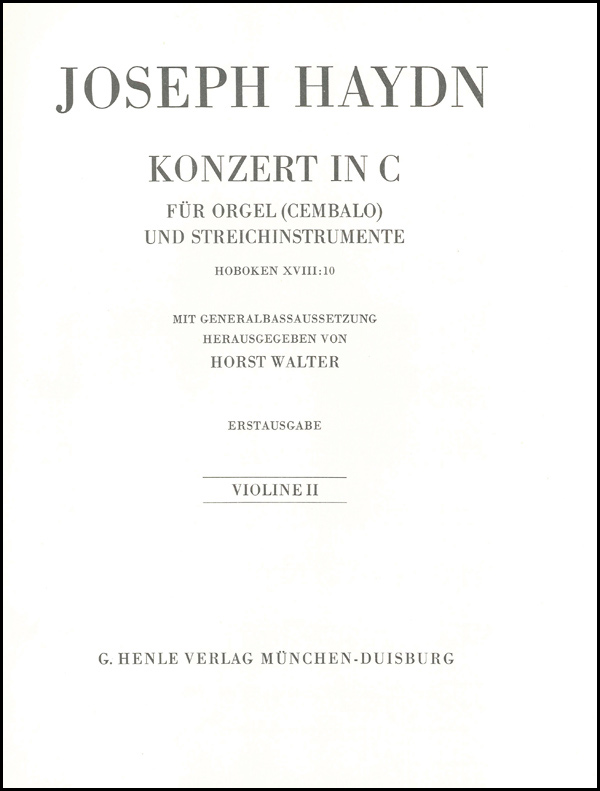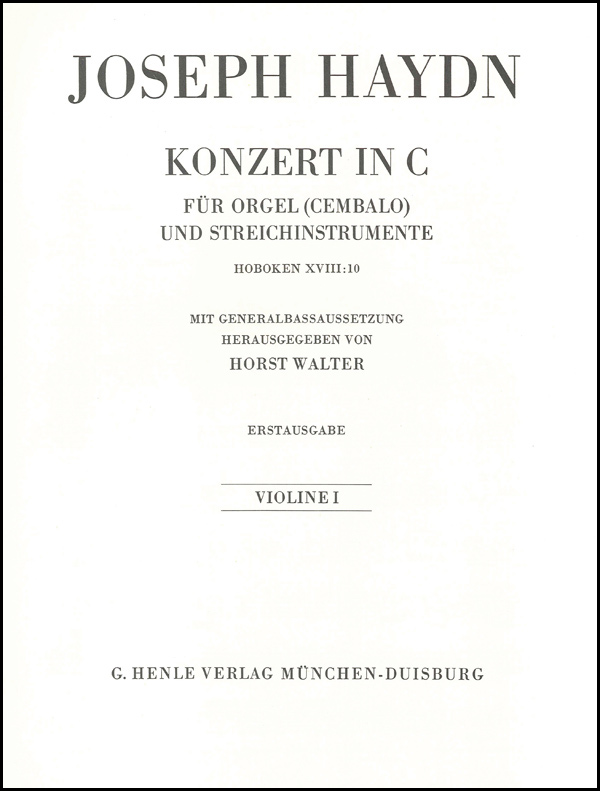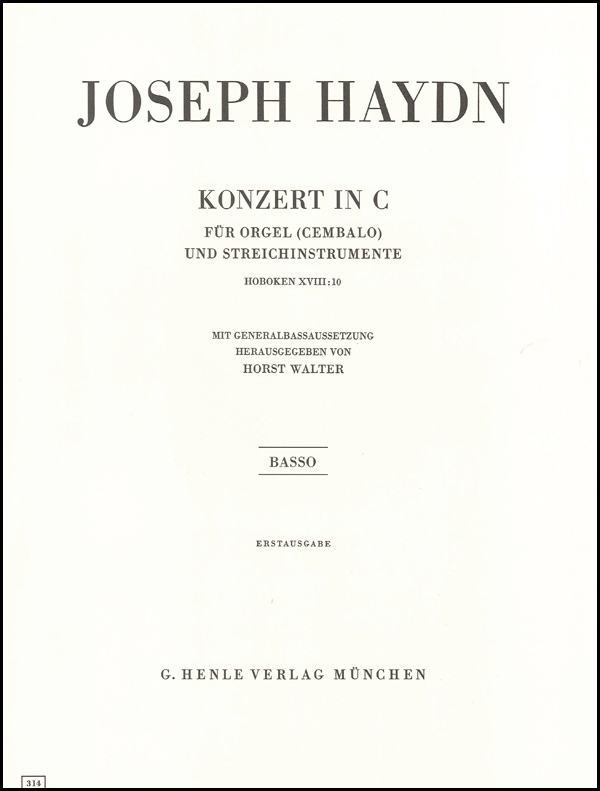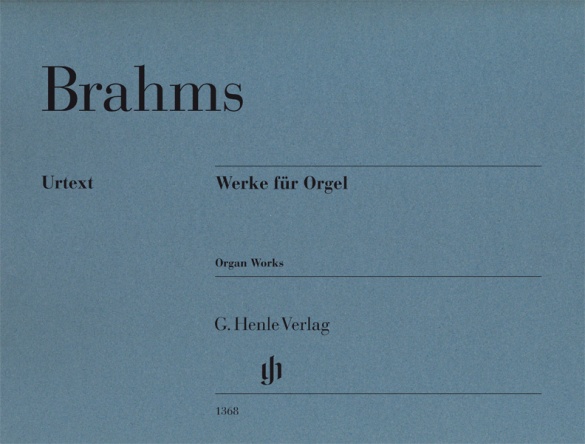

Johannes Brahms
Works for Organ
Johannes Brahms’s organ works in a sense “frame” his whole oeuvre. He wrote several preludes and fugues and the chorale prelude “O Traurigkeit, o Herzeleid” in the mid-1850s, at a time when he was making an intensive study of counterpoint. The Eleven Chorale Preludes op. 122, on the other hand, are Brahms’s final work, composed in 1896, immediately before and after the death of Clara Schumann. This revised Henle Urtext edition presents all of Brahms’s organ works in a single volume, following the musical text of the New Brahms Complete Edition, and with a preface and a commentary that reflect the latest scholarship. The early versions of two of these pieces are also given in an appendix.
Content/Details
About the Composer

Johannes Brahms
His significant output comprises chamber music, piano works, numerous choral compositions and songs (including settings of folk-song lyrics), as well as large-scale orchestral works in the 1870s and 1880s. His compositions are characterized by the process of developing variation. He is considered an antithesis to the New German School around Liszt, and an advocate of “absolute” music.
| 1833 | Born in Hamburg on May 7, the son of a musician. His first piano instruction with Willibald Cossel at age seven, then with Eduard Marxen; first public performances from 1843. |
| 1853 | Concert tour through German cities; he meets Schumann, who announces him as the next great composer in his essay “Neue Bahnen” (“New Paths”). A lifelong, intimate friendship develops with Clara Schumann. |
| 1854–57 | Piano Concerto No. 1 in D minor, Op. 15. |
| 1857–59 | Choir director, pianist, and teacher at the royal court in Detmold. |
| 1859–61 | Director of the Hamburg Women’s Choir. |
| 1860 | Manifesto against the New Germans around Liszt. |
| 1863 | Cantata “Rinaldo,” Op. 50. |
| 1863–64 | Director of the Wiener Singakademie. |
| 1868 | Partial performance in Vienna of “A German Requiem,” Op. 45 (the complete work premiered in Leipzig in 1869) |
| 1871–74 | Artistic director of the Gesellschaft der Musikfreunde (Society of Friends of Music) in Vienna. |
| 1873 | Haydn Variations, Op. 56a, for orchestra. |
| from 1877 | His symphonic output begins with the Symphony No. 1 in C minor, Op. 68 (begun 1862); composition of the Symphony No. 2 in D major, Op. 73; the Symphony No. 3 in F major, Op. 90 (1883); and Symphony No. 4 in E minor, Op. 98 (1884–85): cantabile themes, chamber-music-like style. |
| from 1878 | Travels in Italy. |
| 1878 | Violin Concerto in D major, Op. 77, for Joseph Joachim. |
| 1881 | Piano Concerto No. 2 in B-flat major, Op. 83, with a scherzo movement. |
| 1886 | Honorary president of Vienna’s Tonkünstlerverein (Association of Musicians). |
| 1897 | Four Serious Songs, Op. 121. Dies in Vienna on April 3. |
Product Safety Informations (GPSR)

G. Henle Verlag
Here you can find the information about the manufacturer of the product.G. Henle Verlag e.K.
Forstenrieder Allee 122
81476 München
Germany
info@henle.de
www.henle.com
Für den Brahms-Forscher sowie professionelle Interpreten dieser Musik ist dieser Band sicherlich eine lehrreiche Bereicherung.
Singende Kirche, 2018In de nieuwe uitgave van 2015 zijn de ongerechtigheden en slordigheden uit de 1927-editie, die in 1965 een reprint beleefde, alle gecorrigeerd. Tevens zijn nu ook de eerste versies van de Fuge as moll uit 1856 en het Choralvorspiel “O Traurigkeit, o Herzeleid” uit 1858 opgenomen, die Bozarth in 1988 al afzonderlijk had gepubliceerd. Al gaat het vaak over details, ze zijn van grote waarde voor de uitvoering en maken deze uitgave uitermate belangwekkend.
De Orgelvriend, 2018Nach wie vor eine empfehlenswerte Gesamtausgabe.
Musica Sacra, 2018recommendations
autogenerated_cross_selling
Further editions of this title


